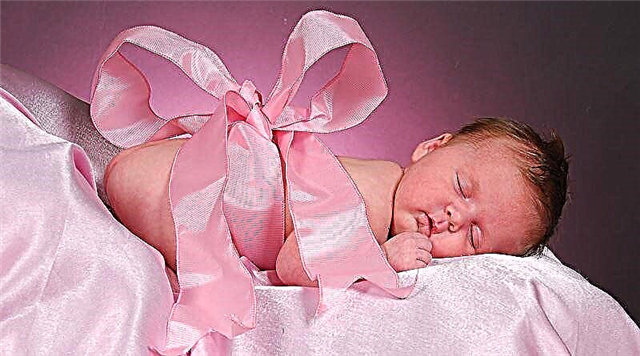The question of how to wean a child from sucking a thumb worries many new parents. The situation when a baby pulls one, two fingers or even a whole fist into her mouth is familiar to almost half of mothers. Their concern can be understood, because such a picture touches only in the first months of a child's life, then adults begin to understand that this unhelpful habit is not only ugly, but also not hygienic. The first desire of parents is to forbid the baby to bring his fingers to his mouth. However, such restrictions in most cases will not have a pronounced positive effect. After all, the main goal is to find the cause of the pathological condition: compensatory or psychological.
Reflex, which is laid by nature
The vast majority of newborns suck their fingers, and, as can be seen in the pictures obtained with the help of ultrasound, even babies in the womb are doing this.
Such an action is laid by nature, because the sucking reflex is necessary so that a barely born child can survive and get food - mother's milk.
 Thumb-sucking for unborn babies means exercising. That is why a skilled infant with a trained reflex grasps everything that touches them with his lips.
Thumb-sucking for unborn babies means exercising. That is why a skilled infant with a trained reflex grasps everything that touches them with his lips.
The sucking reflex is so strong that often the newborn sucks his fingers, not only because of hunger, but also in order not to lose an important skill.
The interaction of the facial muscles, trigeminal, vagus and nasopharyngeal nerve trunks during sucking helps to stabilize the central nervous system and revitalize the brain.
An important result of this "action" is not only an improvement in the functioning of the central nervous system of a small child, but also the evocation of such important emotions for him as a sense of security, calmness and psychological satisfaction.
Why does an older baby suck his thumb?
And if the behavior of a baby born into the world can be explained by basic instincts, then why does a baby suck a thumb at an older age? Scientists have identified several main reasons for this behavior:
- Cam sucking after 6 months can be explained by the fact that the tongue and mouth of the child turns into a means of studying the world around and receiving important information for development. Everything that got into the hands, the baby sends into the mouth. This concerns toys, blankets, pets' tails and, naturally, their own fingers.
- The obvious reason a baby sucks a thumb is hunger. It doesn't matter if the baby is breastfed or on a special formula, sucking is the only way to get food. That is, a baby who has dragged his fist into his mouth signals to his mother that he is hungry.
- Weaning too early often results in a baby sucking on the thumb. Moreover, a certain pattern is visible - the shorter the period of breastfeeding was, the higher the likelihood that the baby will begin to pull the fist into his mouth.
- Another reason for thumb sucking is teething, which is accompanied by soreness. To relieve unpleasant sensations, "scratch" irritated gums, the child drags into his mouth not only fingers and a fist, but also any other objects that are nearby.
- Mother's breast for the baby is a guarantee of security, so he perceives sucking as a way to calm down and feel safe. That is why, in the event of any emotional discomfort, alarming situation, the appearance of a stranger in the house, the child reaches for the finger as a substitute for the mother's breast.
- A toddler at 2 years old (slightly younger or slightly older) may suck his thumb due to lack of parental attention. When a child is bored without a mother, he subconsciously pulls his finger into his mouth to compensate for the warmth of the mother's body.
There is an opinion that babies who receive mother's breast on demand, without any restrictions, very rarely suck their fingers. The explanation is simple: babies satisfy all basic instincts and the desire to be close to their mother.
Is the habit of sucking fingers harmful?
Pediatrician Yevgeny Komarovsky is convinced that thumb sucking is not a child's problem, but a maternal problem. It is the parents who are worried about this, especially if they hear negative comments from others.

Most often, this habit disappears on its own, unless, of course, it is fixed due to the wrong actions of mom or dad... However, stereotypical behavior can lead to a number of negative consequences:
- When sucking fingers, various harmful microorganisms and larvae of worms can enter the digestive tract. Of course, this does not happen at 2 months or a little later, when the child spends all the time in the crib. But with the onset of the active period, the baby begins to explore the world around him, simultaneously pushing not always clean fingers into his mouth.
- According to many orthodontists, such childhood weakness is fraught with the formation of an incorrect bite (the front upper teeth protrude forward) and even problems with the formation of speech skills. This is possible if finger sucking continues after the age of five, when baby teeth begin to fall out.
- If the habit has passed into senior preschool and even primary school age, then the child will have a hard time because of the ridicule of peers. And this is already fraught with serious psychological problems and difficulties with adaptation.
- Sucking and fingers suffer. Exposure to teeth, gum pressure, constant contact with saliva leads to cracks, calluses, abrasions and deformation of the nails. Through damaged skin, pathogenic bacteria can enter the bloodstream, as a result of which tissue infection and inflammation begins.
Thus, the ingrained habit of sucking fingers is potentially harmful to the child, both from a hygienic and from a psychological point of view.
How can we wean a baby from this addiction of little use? The choice of the method will depend on the reason why the baby is drawn to the fingers, its age and personality characteristics.
How to wean a child from thumb sucking?
More recently, there were, one might say, "old-regime" methods of getting rid of this negative habit. And still some well-wishers can advise an anxious mother in such highly controversial ways as:
 lubricating fingers with mustard, an extract from aloe leaves, applying a bitter varnish to the nails or sprinkling pepper on the fists (the main thing is that the product tastes unpleasant);
lubricating fingers with mustard, an extract from aloe leaves, applying a bitter varnish to the nails or sprinkling pepper on the fists (the main thing is that the product tastes unpleasant);- restriction of movement by bandaging fingers, putting on mittens on hands, tight swaddling (when it comes to babies) or tying arms to the body of older children;
- constant shouts that sound every time the child pulls a finger to his mouth;
- threat of punishment for trying to suck a finger or punishment itself.
Some parents find such methods quite effective, while others point to their cruelty. For example, mustard can damage the oral mucosa.
Such restrictive measures often end in a relapse of the bad habit. As soon as the parents stop tying their hands or lubricating their fingers with something bitter, the baby begins to suck even more intensely in order to calm down and restore a positive psychological attitude.
Parents should choose the most painless method of eliminating negative addictions. The most sensible and obvious step is to find and eliminate the root cause for which the baby sucks his fingers.
Up to 2 years
Usually, by the beginning of the second year of life, the sucking reflex fades away on its own. However, thumb-sucking can become a habit due to dissatisfaction with the basic instinct in infancy. The rules for getting rid of the addiction will depend on the way the baby is fed.

Breast-feeding
If the infant feeding on mother's milk additionally sucks a finger, the mother, first of all, should make sure how correctly she has adjusted the feeding of the baby. Most likely, the reason is very simple - the child is hungry and demands mother's breast. What to do?
- Try increasing the duration of the feed. Have the baby sit at the breast for more than half an hour. In this case, the sucking baby will eat enough and will satisfy the basic instincts.
- If you give both breasts to your baby during a single meal, try offering them at regular intervals. That is, the second breast is given only after the baby has sucked the first one for 25 minutes.
- There is no need to worry that the child will overeat. No matter how much he is near the mother's breast, he will take such an amount of milk that is necessary for full saturation.
- If the baby is distracted by something during feeding, there is no need to curtail the meal. Wait a little, and the baby will return to its mother's breast by itself.
If possible, curtail the feeding process gradually. First, you need to reduce the number of daytime feedings, and only then move on to nighttime. This will allow the baby to experience weaning more easily.
Artificial feeding
If the child is artificial, then weaning from a bad habit will be carried out in slightly different ways. In the case of IV, children are fed according to a specific schedule, and a portion of the mixture is dosed. How to deal with this situation?
 Reduce the intervals between meals if your baby begins to pull his fingers to his mouth. This is a signal that he is feeling hungry.
Reduce the intervals between meals if your baby begins to pull his fingers to his mouth. This is a signal that he is feeling hungry.- To fully satisfy the sucking reflex, you should purchase a teat that allows you to lengthen the feeding process. The fixture should be rigid and with a smaller hole.
- Instead of a finger, offer the child a dummy, but to avoid harmful effects on the teeth, it is better to take an orthodontic model. It ensures the correct position of the tongue in the oral cavity, contributes to the optimal structure of the incisors.
If your baby is teething, you need to purchase a high-quality teether with an additional cooling element. This device will help the child to give up fingers.
In general, the advice of experts regarding the habit of sucking fingers at this age comes down to satisfying the sucking reflex. Mom's breast, a bottle of formula, or an orthodontic pacifier can help.
2 to 5 years old
When a toddler turns 2 or 3 years old, the factors that cause him to suck his thumb are no longer related to reflexive behavior. At the forefront are the psychological causes of obsessive behavior.
 Among the main reasons for the formation of a bad habit or its return, experts identify the following "catalysts":
Among the main reasons for the formation of a bad habit or its return, experts identify the following "catalysts":
- dysfunctional family environment;
- strict parenting methods;
- lack of mother's attention;
- problems with getting used to kindergarten;
- psycho-emotional overload;
- fears.
Before moving on to solving the problem, you need to establish its true cause. You can do this on your own by analyzing your own and children's behavior, or contact a specialist who at the same time will tell you how to wean the baby from sucking a finger. General recommendations are as follows:
- Pay more attention to your child. Read books, communicate, engage in outdoor games, often play a small ball to keep children's fingers busy. In general, keep your child warm and safe.
- Reduce your emotional or intellectual stress. This is especially true for those mothers who are passionate about the idea of early child education. Another rule is to give up the load in the evening, instead of playing, introduce a bathing ritual.
- Closer to the age of five, babies develop various fears and phobias: fear of the dark, monsters, fairy-tale characters. An impressionable child tends to suck his thumb and calm down. It is better to deal with this reason with the help of psychologists.
- Refuse punishment, especially corporal punishment. Three-year-olds are already able to explain the reason for their behavior. In turn, they can also be told about why thumb sucking is ugly and unhygienic.
If you have spent a lot of effort, and have not achieved a positive result, you should contact a psychologist or psychotherapist. A specialist will help you cope with an intractable problem.
5 years and older
If a child sucks a thumb even after the age of five, parents should be alert. In most cases, this habit indicates a serious psychological problem that requires the intervention of professionals.
 Thus, some cases of sucking fingers of schoolchildren and adolescents are a manifestation of obsessive-compulsive disorder that occurs for physiological and psychological reasons (for example, due to severe stress).
Thus, some cases of sucking fingers of schoolchildren and adolescents are a manifestation of obsessive-compulsive disorder that occurs for physiological and psychological reasons (for example, due to severe stress).
To make sure that a bad habit is a symptom of this disorder, you need to pay attention to other signs. For example, a child sucking on a finger may demonstrate:
- winding hair on a finger or pulling out curls;
- biting nails or, for example, pencils;
- scratching or tingling skin;
- obsessive cough.
Older students often demonstrate obsessive thoughts, various ritual actions, high anxiety, various fears, and depressive mood.
Naturally, to make or exclude such a diagnosis, you need to contact a neurologist or psychiatrist. The specialist will prescribe the necessary medications and psychotherapeutic procedures - play, cognitive or art therapy.
Parents in such a situation should follow the recommendations of specialists:
- provide a comfortable home environment;
- prevent emotional and intellectual overstrain, so as not to aggravate the course of the disease;
- refuse to sharpen children's attention to sucking fingers and other obsessive actions;
- track every change in children's behavior.
Of course, one should not scold a baby for such addictions. Punishment will only increase the manifestation of negative symptoms and lengthen the recovery period.
As a conclusion
It is necessary to unlearn this bad habit, but if nothing works, then you should stop and catch your breath. Thumb sucking is, of course, a warning sign that requires an adult response. However, it cannot be considered a disaster.
Experts recommend acting consistently and with the utmost care. You cannot force a child, punishment will also not help in the fight against a bad habit.
The choice of the preferred method will depend on several factors, including the age of the child, the reasons for the negative addiction. It is better to abandon harsh methods such as smearing fingers with mustard or tying hands.
Thus, the process of weaning from finger sucking can take a long time. And yet you should not despair. Mom needs to gain strength and patience, and the baby will definitely give up the idea of pulling a fist into his mouth very soon.

 lubricating fingers with mustard, an extract from aloe leaves, applying a bitter varnish to the nails or sprinkling pepper on the fists (the main thing is that the product tastes unpleasant);
lubricating fingers with mustard, an extract from aloe leaves, applying a bitter varnish to the nails or sprinkling pepper on the fists (the main thing is that the product tastes unpleasant); Reduce the intervals between meals if your baby begins to pull his fingers to his mouth. This is a signal that he is feeling hungry.
Reduce the intervals between meals if your baby begins to pull his fingers to his mouth. This is a signal that he is feeling hungry.

